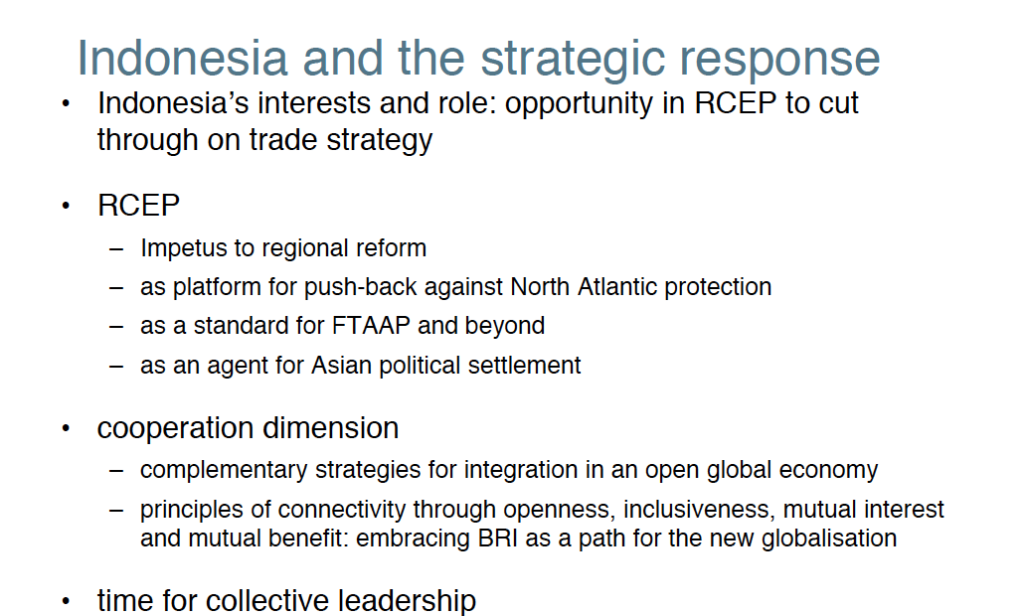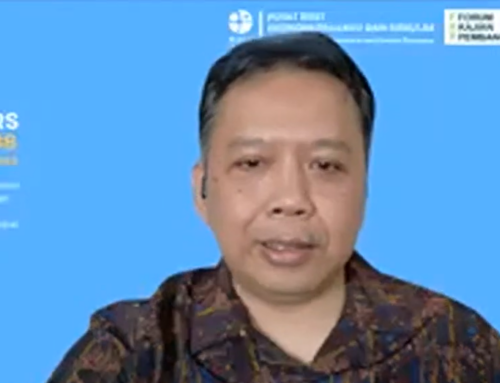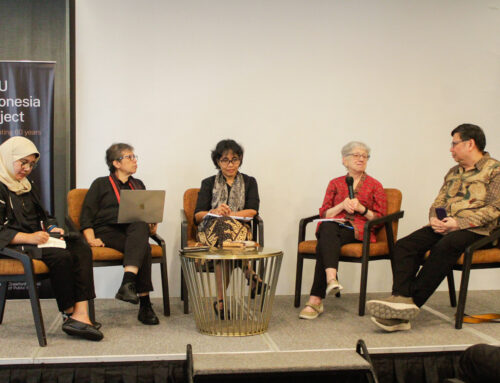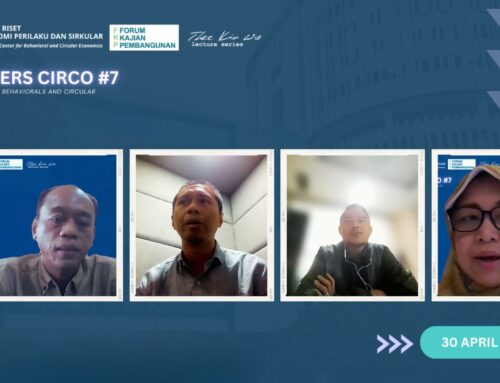One of FKP’s special events, The Hadi Soesastro Policy Forum 2017, was held by Centre for Strategic and International Studies (CSIS) and Indonesia Project, The Australian National University on 3 July 2017 in Jakarta to pay a tribute for Prof. Hadi Soesastro, a notable Indonesian economist who was also one of the founders of the CSIS and once an adjunct professor at ANU’s Research School of Pacific and Asian Studies (RSPAS). Similar to Hadi Soesastro’s interest, the forum always focuses on topics surrounding trade and international relation issues. This year’s Hadi Soesastro Policy Forum is entitled Why Indonesia must show the way on trade strategy by one of Australia’s eminent economists Professor Peter Drysdale (emeritus professor, The Australian National University).
Professor Drysdale opened his lecture with a reminder that today’s world is being struck by crises time after time. The rising inequalities around the world, even in industrial countries, caused by economic crises had led to populist policies that were fueled by the anguish of struggling classes to gain political power. Social phenomena happened in the United States and their inclination to embrace protectionism were the most pertinent samples of what sort of harms could crises bring. Despite the stress, Asia, as a community, had showed well-performing economies and relatively steady relationship in terms of economic cooperation, although the region was often underestimated for its weaknesses in institutional matters. Indonesia, particularly, had been growing ever since the establishment of economic cooperation with many countries that marked the beginning of an opened regime in the country. That provided the rest of the world an evidence of how openness could make the people better off. Indonesia, as said, should proliferate its undertaking in maintaining the success amidst global uncertainties.
As the discussant of this forum, Professor Mari Pangestu (CSIS) asked Professor Drysdale about how exactly Indonesia can share its eagerness to open the way to the rest of the world. She also pointed out that the government had to raise people awareness of any possible consequence of limiting trade activities with other countries by keeping the people well-informed with the current global situation.
The forum was also accompanied by the launch of the latest Indonesia Update Book entitled “Digital Indonesia: Connectivity and Divergence” edited by Ross Tapsell (ANU’s College of Asia and the Pacific) and Edwin Jürriens ( School of Humanities and Social Sciences, University of Melbourne) and which encompasses a wide array of outlooks towards digital phenomena in Indonesia and the effects it has on daily social interactions, human rights, and development. The book was launched by the Indonesia Minister for Communications and Information Technology, His Excellency Rudiantara, and was followed by a panel discussion moderated by Yose Rizal Damuri (CSIS).
Some writers made an appearance to give firsthand explanations of their writings, such as Onno W. Purbo (XECUREIT), Kathleen Azali (ISEAS-Yusof Ishak Institute), and Grace Citra Dewi (CSIS) speaking on, respectively, digital infrastructure, the role of digitalization in accessing knowledge, and the digital economy. The discussion following the first panel was largely oriented to addressing a huge gap in digital utilization in Indonesia, which in a more popular term is referred as digital divide. In the presence of accelerating digital advancement and considering its exigent nature in the imminent world, the book is intended to intrigue the readers since it gives us a glimpse, if not a whole picture, of Indonesian position along the line of time.





